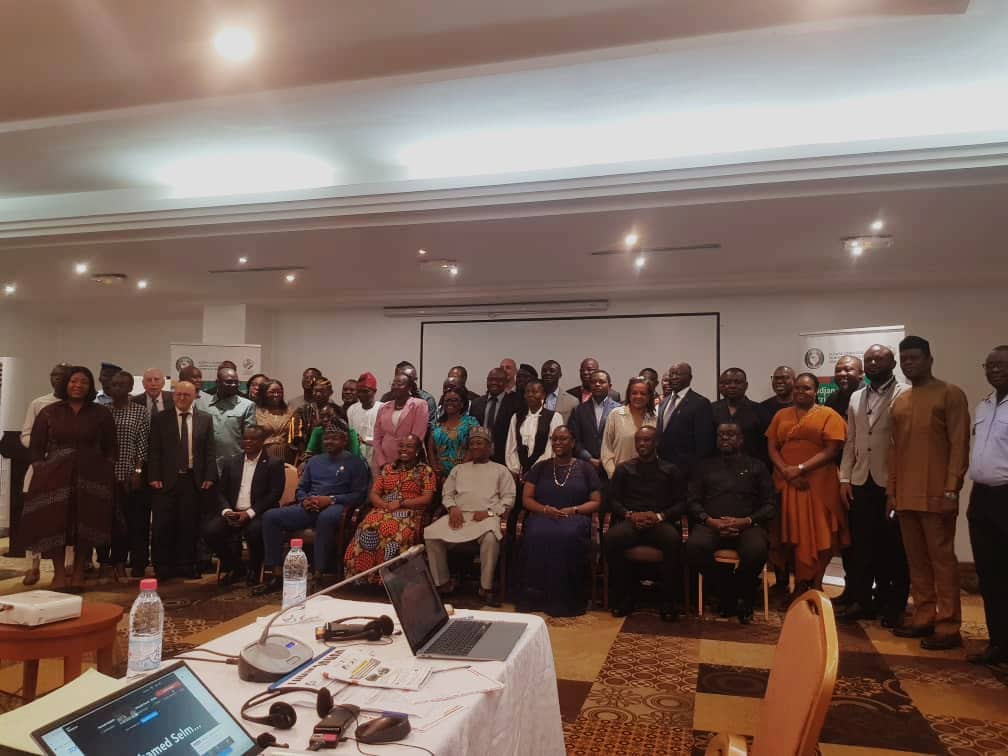
Cotonou, Benin 29th January 2025 – While ECOWAS observes its 50th Anniversary in 2025, as an enviable Economic Community with a full-fledged freedom of movement of persons and a functioning regional Free Trade Area, Corridor Countries attending a 3-day technical workshop to consider recommendations of for enhanced facilitation of trade and transport under the Abidjan-Lagos Corridor Highway project, have unanimously called for urgent high-level political support to help remove obstacles and excessive check points along some regional corridors including land borders for enhanced intra-regional trade and free movement of community citizens.
They called for the good provisions in existing Community Texts, which have been aligned with international best practices and Agreements to be respected. The Workshop, which is being hosted by the Transport Directorate of the ECOWAS Commission in Cotonou, Benin, from Wednesday 29th, January to 31st January 2025 seeks to among others validate diagnostic reports and recommendations covered in a Draft Report of the Trade and Transport Facilitation (TTF) Study of the Abidjan-Lagos Corridor Highway Development Project.
One of the major components of the preparatory phase of the Abidjan-Lagos Corridor Highway Development Project is the preparation and implementation of a comprehensive Trade and transport Facilitation strategy to provide seamless movement of goods, persons and vehicles along the corridor. The envisioned framework will cover all measures aligned with regional, continental and international trade facilitation agreements, eliminate border control delays and harassments, as well as other non-tariff barriers, and multiple control-checks on sections. The framework will also seek to ensure the full operationalization of regional facilitation measures such as the new Transit Procedure (which replaces the erstwhile Inter-state Road Transit Scheme), improve regulation of cross-border transportation, standardize and customs procedures and fully interconnect systems, digitalize the application of the ECOWAS Brown Card for cover cross-border vehicles as well as all other related interventions.
This Workshop is being attended by project managers, technical experts, and government officials from relevant ministries and departments of Corridor Member States, the related Directorates of the ECOWAS Commission (Transport, Trade, Customs & Taxation and Free Movement & Migration). The meeting is also being attended by the main financier of the Corridor Development Project the African Development Bank, the EU and other stakeholders and organizations relevant to the project like ALCO, Borderless Alliance, the ECOWAS Brown Card, etc.
As part of his opening Statement, the Director of Transport at the ECOWAS Commission, Mr. Chris Appiah indicated that once completed, the Corridor Trade and Transport Facilitation framework will contain a comprehensive set of measures to be implemented together before and after the construction of the 6-lane dual carriage supranational highway from Abidjan to Lagos. This is expected to contribute significantly to enhancing intra-regional trade, free movement community citizens, vehicles and related services under the ECOWAS regional integration Agenda, while positioning Member States properly to benefit from trading under the African Continental Free Trade Agreement.
The Abidjan-Lagos Corridor extends over a length of almost 1,028 km, connects some of the most important and economically dynamic cities in Africa, namely: Abidjan, Accra, Cotonou, Lomé, and Lagos and covers a large part of the population of West Africa. It also connects very dynamic seaports which serve all the landlocked countries of the region, namely Burkina Faso, Mali, and Niger. The development objective of the project, once implemented, is to generate social and economic activities, promote cross-border trade and integrate economies within the ECOWAS community. This will help to reduce the poverty levels of the people who depend on the transport modes of the corridor for their livelihoods. This will be achieved through the construction of a six-lane dual carriageway highway from Abidjan-Lagos, including the development of economic hubs along the Corridor by ensuring coherence between transport modes and economic activities to engender the integration and economic development.
… END…

Well done